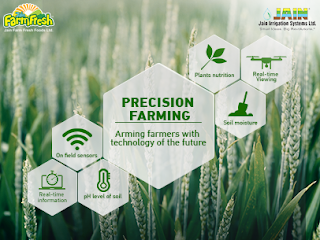Global warming and other drastic climatic changes, depletion of the ozone layer and natural resources - the alarming rate at which we are robbing our planet off its natural resources is no joke! Casual and irresponsible use of the resources has led to their fast depletion and has set off the warning bells. Small changes can now be seen around us though. Conscious efforts by some to reduce, reuse & recycle the resources, conserving water and energy, use of sustainable agriculture by some farmers, going organic, minimalism are some of the ways to combat the devil lurking amongst us.
Every purchase of ours leaves an environmental footprint.
Right from the materials used to make it, the pollutants emitted in the manufacturing process to the disposable of waste to the packaging that ends up in landfills are sad steps towards making this planet unliveable in the future.
So, consider reusing and recycling and opt for things with minimal packaging.
Moving to renewable energy is critical to reducing the erosion of our land and water resources, saving wildlife and slowing down the climatic changes.
Going solar, reducing the water and electricity usage are crucial to reducing our carbon footprint on the earth.
Using water and electricity judiciously, not wasting them, recycling water, switching off taps, lights etc. all go towards conserving the resources.
From fruits & vegetables to clothes, processed foods, shoes to name it, the consumer is inundated with choices and should make an informed and judicious decision.
This is one area you can use effectively to minimise your impact on the planet. Read the labels of the products you are buying - List of ingredients, preservative content etc. Choose agro-products that have used sustainable agriculture practices.
Read up on the agriculture technology used by the manufacturers in getting the products to you, the company’s engagement with farmers and the other workforce. Choose products that have used sustainable packaging.
All responsible companies have this information on the product labels and on their websites or other social media platforms. All these seemingly small points go a long way in making this world a better place.
Apart from the above reasons, there are many more ways we can adopt sustainable living. Say no to plastic, drive less, drive green, boycott products that endanger wildlife, make your home green, go organic are some more ways to move towards sustainable living.
It is time we all stepped in to do our bit to ‘Be the Change’!
According to Wikipedia:
“Sustainable living is a lifestyle that attempts to reduce an individual’s or society’s use of the Earth’s natural resources and personal resources. Practitioners of sustainable living often attempt to reduce their carbon footprint by altering methods of transportation, energy consumption, and diet. Proponents of sustainable living aim to conduct their lives in ways that are consistent with sustainability, in natural balance and respectful of humanity’s symbiotic relationship with the Earth’s natural ecology and cycles. The practice and general philosophy of ecological living is highly interrelated with the overall principles of sustainable development.”Here are 3 ways in which we can move towards sustainable living
Reduce, Reuse & Recycle
Every purchase of ours leaves an environmental footprint.
Right from the materials used to make it, the pollutants emitted in the manufacturing process to the disposable of waste to the packaging that ends up in landfills are sad steps towards making this planet unliveable in the future.
So, consider reusing and recycling and opt for things with minimal packaging.
Reduce water and electricity usage and choose renewable energy
Moving to renewable energy is critical to reducing the erosion of our land and water resources, saving wildlife and slowing down the climatic changes.
Going solar, reducing the water and electricity usage are crucial to reducing our carbon footprint on the earth.
Using water and electricity judiciously, not wasting them, recycling water, switching off taps, lights etc. all go towards conserving the resources.
Read the Labels before Making the Purchase
From fruits & vegetables to clothes, processed foods, shoes to name it, the consumer is inundated with choices and should make an informed and judicious decision.
This is one area you can use effectively to minimise your impact on the planet. Read the labels of the products you are buying - List of ingredients, preservative content etc. Choose agro-products that have used sustainable agriculture practices.
Read up on the agriculture technology used by the manufacturers in getting the products to you, the company’s engagement with farmers and the other workforce. Choose products that have used sustainable packaging.
All responsible companies have this information on the product labels and on their websites or other social media platforms. All these seemingly small points go a long way in making this world a better place.
Apart from the above reasons, there are many more ways we can adopt sustainable living. Say no to plastic, drive less, drive green, boycott products that endanger wildlife, make your home green, go organic are some more ways to move towards sustainable living.
It is time we all stepped in to do our bit to ‘Be the Change’!


